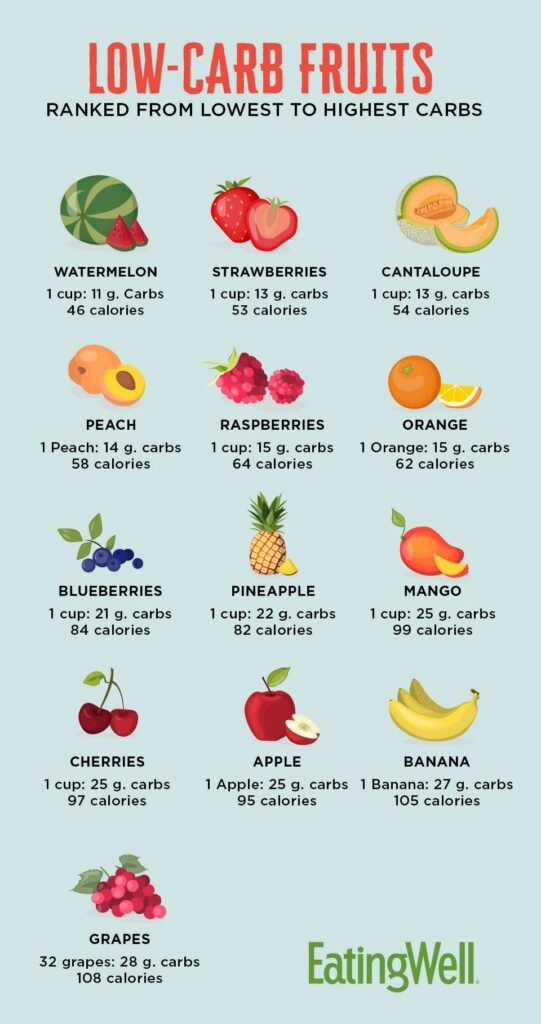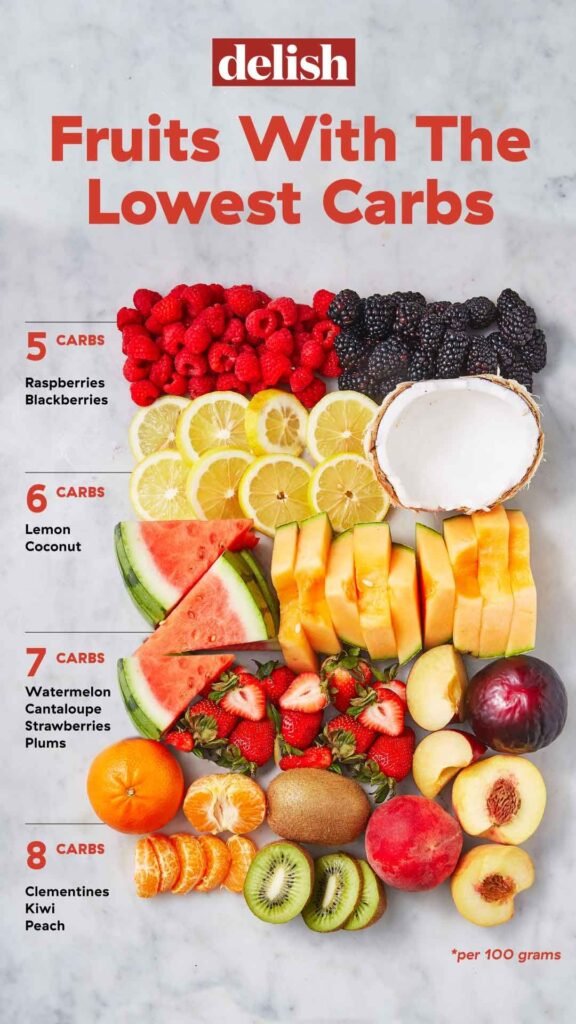Hey there! Have you ever wondered why oranges taste so sweet? Well, it turns out that oranges are not only bursting with Vitamin C, but they are also high in natural sugars. Yes, you read that right! These juicy fruits contain a generous amount of natural sugars that make them irresistibly delicious. In this article, we’ll explore the reasons behind the orange’s sweet taste and how it can be a healthy addition to your diet. So, grab your favorite citrus snack and let’s embark on a journey to uncover the secrets of the orange’s natural sweetness.
What are natural sugars?
Definition of natural sugars
Natural sugars refer to the sugars found naturally in whole foods such as fruits, vegetables, and milk. These sugars are not added during processing or preparation and are instead inherently present in the food. Natural sugars provide a sweet taste to these foods and can contribute to their nutritional value.
Difference between natural sugars and added sugars
The main difference between natural sugars and added sugars lies in how they are incorporated into food. Natural sugars are naturally present in whole foods, while added sugars are added during processing or preparation. Added sugars are typically found in foods like candy, sodas, and processed snacks. Unlike natural sugars, added sugars provide empty calories and lack the additional nutrients found in whole foods.
Nutritional composition of oranges
Calories in oranges
Oranges are a low-calorie fruit, making them a great option for those watching their caloric intake. A medium-sized orange contains about 62 calories, making it a satisfying and guilt-free snack choice.
Carbohydrates in oranges
Carbohydrates are the primary macronutrient found in oranges. A medium-sized orange contains approximately 15 grams of carbohydrates, which primarily come in the form of natural sugars. These carbohydrates provide the body with energy and can be a good source of fuel for physical activities.
Fiber in oranges
Oranges are a good source of dietary fiber. A medium-sized orange contains around 3 grams of fiber, which contributes to a healthy digestive system and promotes feelings of fullness. Including oranges in your diet can help meet your daily fiber needs and support overall gastrointestinal health.
Vitamins in oranges
Oranges are renowned for their high vitamin C content. A medium-sized orange provides more than 70% of the recommended daily intake of vitamin C. This essential vitamin plays a crucial role in boosting the immune system, promoting collagen production, and acting as a powerful antioxidant. Oranges also contain small amounts of vitamins A and B-complex, which are important for maintaining overall health.
Minerals in oranges
Oranges are not only rich in vitamins but also contain essential minerals. They are a good source of potassium, which is important for maintaining proper electrolyte balance, blood pressure regulation, and heart health. Oranges also contain small amounts of calcium, magnesium, and phosphorus, which all contribute to healthy bones and overall well-being.

Health benefits of natural sugars
Energy source
Natural sugars found in oranges provide a quick source of energy for the body. These sugars are easily digestible, allowing for a rapid release of glucose into the bloodstream. This energy boost can be particularly beneficial before workouts or during activities that require physical exertion.
Improved digestion
The fiber content in oranges helps promote healthy digestion. Fiber adds bulk to the stool, making it easier to pass through the digestive tract and preventing constipation. Additionally, the natural sugars found in oranges can aid in maintaining a healthy balance of gut bacteria, further supporting optimal digestion.
Improved athletic performance
The natural sugars in oranges can also enhance athletic performance. The quick release of glucose into the bloodstream provides a readily available source of fuel for muscles during exercise. This can help improve endurance, delay fatigue, and enhance overall athletic performance.
Boosted immune system
Oranges are packed with vitamin C, which is well-known for its immune-boosting properties. Vitamin C helps stimulate the production of white blood cells, which are essential in fighting off infections and supporting a healthy immune system. Including oranges in your diet can help keep your immune system strong and resilient.
Reduced risk of chronic diseases
Consuming natural sugars from whole foods like oranges can contribute to a reduced risk of chronic diseases. The high antioxidant content, particularly vitamin C, helps protect against free radicals that can lead to cellular damage and chronic inflammation. Additionally, the fiber content in oranges promotes heart health by helping to maintain healthy cholesterol levels.
Can natural sugars lead to weight gain?
Understanding the calorie intake
While natural sugars can contribute to weight gain if consumed in excess, oranges are a low-calorie fruit that can be incorporated into a balanced diet without causing weight gain. It is important to be mindful of your overall calorie intake and to consume oranges as part of a well-rounded meal plan.
Balanced diet and portion control
Including oranges as part of a balanced diet is key to preventing weight gain. It is important to consume a variety of nutrient-dense foods and to practice portion control. Incorporating oranges into meals and snacks while keeping an eye on the overall calorie intake can help maintain a healthy weight.
Physical activity and exercise
In addition to a balanced diet, engaging in regular physical activity and exercise is crucial for weight management. Exercise can help burn off excess calories, improve metabolism, and support overall well-being. Pairing physical activity with the consumption of oranges can contribute to a healthy lifestyle and help prevent weight gain.

Glycemic index and oranges
What is the glycemic index?
The glycemic index (GI) is a measure of how quickly a carbohydrate-containing food can raise blood sugar levels. Foods with a high GI are rapidly digested and cause a quick spike in blood sugar levels, while foods with a low GI are digested more slowly, resulting in a steadier release of glucose into the bloodstream.
Glycemic index of oranges
Oranges have a relatively low glycemic index. This means that the natural sugars found in oranges are digested and absorbed at a slower rate, leading to a slower and more regulated increase in blood sugar levels. Consumption of oranges is unlikely to cause sharp spikes and crashes in blood sugar levels.
Effects on blood sugar levels
The low glycemic index of oranges makes them a suitable food choice for individuals with diabetes or those who need to closely monitor their blood sugar levels. The slower release of glucose from oranges helps keep blood sugar levels stable, making them a favorable option for individuals looking to maintain or improve their blood sugar control.
Recommended intake of natural sugars
Sugar intake guidelines
The Dietary Guidelines for Americans recommend limiting added sugars to no more than 10% of daily calorie intake. This equates to around 12 teaspoons (or 50 grams) of added sugars per day for a 2,000 calorie diet. It is important to note that these guidelines primarily refer to added sugars rather than natural sugars found in whole foods like oranges.
Sources of natural sugars
Incorporating natural sugars from whole foods like oranges can be a healthy way to satisfy sweet cravings. Other sources of natural sugars include fruits like berries, apples, and bananas, as well as vegetables like sweet potatoes and beets. It is important to prioritize whole foods as sources of natural sugars rather than relying on processed snacks or sugary beverages.
Difference between orange juice and whole oranges
Sugar content in orange juice
While orange juice also contains natural sugars, it is important to note that the sugar content in orange juice is higher than that of whole oranges. This is due to the removal of fiber during the juicing process, which concentrates the natural sugars. Consuming whole oranges instead of orange juice allows for a slower release of sugar into the bloodstream and provides the added benefit of fiber.
Fiber content in orange juice
As mentioned earlier, the juicing process removes the fiber content in oranges. This means that orange juice lacks the same fiber benefits as whole oranges. Fiber plays a crucial role in promoting digestive health, supporting feelings of fullness, and regulating blood sugar levels. Choosing whole oranges over orange juice ensures you reap the full benefits of fiber.
Nutrient density comparison
When comparing the nutrient density of orange juice to whole oranges, whole oranges come out on top. While orange juice contains essential vitamins and minerals, the removal of fiber and other nutrients during juicing reduces its overall nutritional value. Whole oranges offer a more balanced and nutrient-dense option, providing a wider range of vitamins, minerals, and fiber.
Tips for consuming oranges
Fresh whole oranges
When consuming oranges, opt for fresh and whole oranges whenever possible. Eating the fruit as a whole allows you to enjoy the natural balance of vitamins, minerals, fiber, and natural sugars. Be sure to wash the orange thoroughly before peeling to remove any potential residue.
Incorporating oranges into meals and snacks
Oranges can be a versatile addition to both meals and snacks. Slice oranges and add them to salads for a burst of citrus flavor, blend them into smoothies for a refreshing boost, or enjoy them as a standalone snack. Mixing oranges with foods high in protein or healthy fats can help balance blood sugar levels and promote satiety.
Avoiding excessive sugar consumption
While oranges provide natural sugars, it is important to avoid excessive consumption, especially if you have specific dietary restrictions or health conditions. Balancing the intake of oranges with other nutrient-rich foods and being mindful of portion sizes can help prevent excessive sugar consumption while still enjoying the benefits of oranges.
:max_bytes(150000):strip_icc()/orange_annotated-6ad01c6d9b4d4e4cbb1cdd687f78877a.jpg)
Alternatives to orange consumption
Low-sugar fruits
If you prefer to limit your sugar intake or want to explore a variety of options, there are several low-sugar fruits to consider. Some examples include berries, such as strawberries, raspberries, and blueberries, as well as apples, pears, and kiwi. These fruits offer a range of flavors, nutrients, and fiber, making them excellent alternatives to oranges.
Vegetables high in nutrients
Vegetables are another option to consider for their nutrient density and low sugar content. Leafy greens like spinach and kale, cruciferous vegetables such as broccoli and cauliflower, and colorful options like bell peppers and tomatoes provide an array of essential vitamins, minerals, and antioxidants. Incorporating a variety of vegetables into your diet can help diversify your nutrient intake.
Other healthy snack options
If you’re looking for alternative snack options, there are plenty of choices beyond fruits and vegetables. Nuts and seeds, such as almonds, walnuts, and chia seeds, offer a satisfying crunch and are packed with healthy fats, protein, and fiber. Greek yogurt, cottage cheese, and hummus are also excellent options for their protein content and versatility.
Conclusion
Oranges are a nutritious fruit high in natural sugars, vitamins, and minerals. Consuming oranges as part of a balanced diet can provide numerous health benefits, including improved digestion, enhanced athletic performance, boosted immune system, and reduced risk of chronic diseases. While natural sugars can contribute to weight gain if consumed in excess, incorporating oranges into a balanced meal plan and maintaining an active lifestyle can help prevent weight gain. The low glycemic index of oranges makes them suitable for individuals with diabetes or those monitoring their blood sugar levels. When it comes to orange consumption, opting for fresh whole oranges over juice allows for the full range of nutritional benefits, including fiber. Remember to balance your sugar intake by including a variety of foods, such as low-sugar fruits, vegetables high in nutrients, and other healthy snack options. With its abundance of natural sugars and numerous health benefits, the orange is indeed a fruit worth including in your diet.






